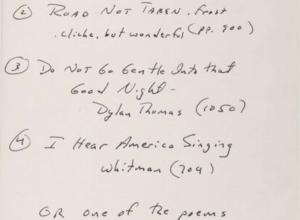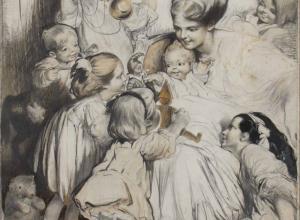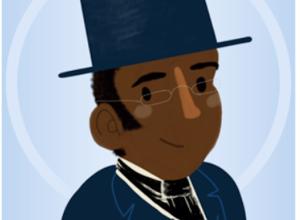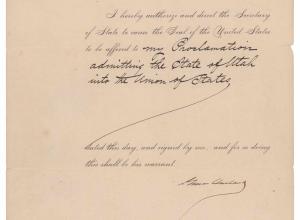Lyon & Turnbull Reveal a Secret Plea from Bonnie Prince Charlie to the King of France
Lyon & Turnbull reveal a letter from Bonnie Prince Charlie to his friend, and cousin, the King of France, pleading him to send forces to help him capture the British crown, has come to light. Valued at £8,000-12,000 it will be sold by Lyon & Turnbull on the 7th May 2014 in Edinburgh.
Simon Vickers, Book Specialist at Lyon & Turnbull, said, “The allure of Charles Edward Stuart, the 'Bonnie Prince Charlie' of legend, and his romantic but ill-starred campaign in 1745-46 to win back the Stuart throne still holds sway 269 years after the crushing defeat of the the Jacobites at Culloden on 16th April 1746. No more so than in 2014, the year of the Scottish Independence Referendum, which represents, arguably, the first time since 1745 that Scotland has got to chose its own political destiny.”

The wisdom of Charles Edward Stuart and his council’s political and miltary strategy has been debated endlessly but the facts of his campaign, and its aftermath, are well established. After defeat at Culloden Charles Edward Stuart made his way towards the Hebrides with some supporters and by 20 April had reached Arisaig on the west coast of Scotland. He then criss-crossed the Hebrides for five months, from Benbecula to Scalpay and then to Stornaway, constantly pursued by Government troops and under threat from local lairds who were tempted to betray him for the £30,000 government bounty upon his head. During this time he met Flora Macdonald, who famously aided him in a narrow escape to Skye. Finally, on 19 September, Stuart reached Borrodale on Loch nan Uamh in Arisaig, where his party boarded two small French ships, which ferried them to France. He never returned to Scotland.
Simon continued, “One thing was certain. For Charles Edward Stuart the defeat at Culloden was a setback but it was not defeat or surrender. An extraordinary letter and memoir, now for sale, sheds light on the Prince’s frame of mind, his view of the failure of the Rising, and his aims in the crucial months after Culloden.”
Six weeks after his escape from Arisaig on the west coast and only three weeks after his arrival at Roscoff, in France, on 11 October 1746, Charles Edward Stuart sat down to write a letter to his crucial ally and supporter, Louis XV, the King of France. He addresses the letter to His Majesty [“Monsieur Mon Frere et Cousin”], stating that he has written a Memorandum of his affairs [“un petit memoire de mes affaires”] for His Majesty, which he strongly hopes to put into the hands of the King himself, and offering to come incognito to a secret rendevous of the King’s choosing.
The “Memoire,” also written entirely by the Prince, gives the Prince’s assessment of the political situation in Britain and claims that English government oppression is fostering ever more support for his cause. He tries to account for the failure of the Rising and defeat at Culloden, saying that he has never lacked for Scottish subjects ready to fight for him, but that he lacked money, equipment and a regular army. If he had had just one of these he states, he would have been again by now Master of Scotland and probably of England too [“et vraisemblablement de toute l’Angleterre”]. If he had only had 3,000 regular troops he informs the King he would have invaded England immediately after the Jacobite victory over Cope at the Battle of Prestonpans and nothing would have stopped his march to London [“rien ne s’opposoit alors a mon arrivé à Londres”]. If he had only had provisions he would have been able to pursue General Hawley at the Battle of Falkirk and destroy his entire army which comprised the flower of the English army [“qui etoit la fleur des troupes Angloises”]. And if he had received sooner half the money sent to him by Louis he would have fought the Duke of Cumberland with equal numbers. With just 1200 more regular troops he would have won the Battle of Culloden.
He concludes by arguing that the setback can still be reversed if His Majesty can provide him with a battalion of 18 or 20,000 men, and assures His Majesty that their interests remain inseparable.
This fascinating and moving letter and Memoir is accompanied by a covering letter, also in the Prince’s hand, almost certainly to the Marquis d’Argenson, Louis XV’s Minister of War, stating that he is enclosing a letter for His Majesty, that without exception no one knows that he has written it nor the method of its delivery, and that his is completely convinced of His Majesty’s friendship for him and His Majesty can be similarly of his.
Provenance: Privately owned, previously in the family archives of the Marquis d’Argenson.















